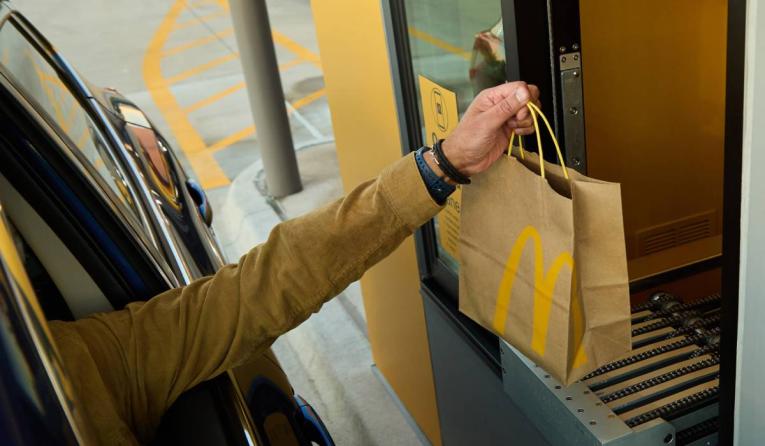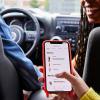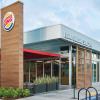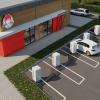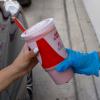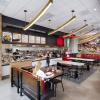Recently, quick-service restaurants are feeling more and more pressure to stay relevant in a highly competitive industry. Some brands are turning to one of digital marketing’s biggest assets, machine learning, to optimize their marketing strategies and stay competitive.
Machine learning allows restaurant owners to tap into customer data to drive more effective campaigns and create personalized experiences. With this technology, quick-serves have a powerful way to make meaningful connections with consumers and get ahead of their competitors.
Let's explore how this emerging trend is driving considerable success in today's market.
What Are the Benefits of Machine Learning for Brands?
- Brands in different industries are reaping numerous benefits from machine learning, including:
- Identifying consumer needs and preferences to create personalized campaigns
- Gathering customer insights from online conversations, reviews, and sentiment analysis
- Predicting customer behaviors more accurately to create tailored experiences
- Understanding consumer trends to make relevant product suggestions and more informed decisions in areas like stock management
- Detecting fraud
- Automating customer service
The benefits may differ depending on the industry, but the general idea is to create a unique customer experience that stands out from the competition.
How Does Machine Learning Help Businesses With Marketing?
Machine learning helps businesses create targeted campaigns that drive their ROI. With this technology, businesses can analyze past sales data to determine which products customers are most likely to buy or the best time to run promotions for those items. In turn, companies can create laser-focused campaigns that promote the right products to the right people at the right time.
Machine learning can also help brands design customer journeys and provide personalized recommendations based on the consumer’s current interests. The impact of personalization is huge for brands, with 52 percent of customers saying they would switch brands if their current one did not personalize its communication.
Business owners can use insight from machine learning to make relevant recommendations and craft personalized messages that are more likely to resonate with their target audience. This helps to improve the relationship and drive more sales from higher customer satisfaction.
Various businesses also use machine learning for content optimization through A/B testing. This type of testing involves creating two versions of an ad and testing them on different audiences to see which works best.
Quick-Service Brands That Have Benefited From Machine Learning Marketing Strategies/Partners
Several leading chains are leveraging machine learning to drive marketing success. McDonald’s and Burger King are both using technology that utilizes machine learning to increase revenue by suggesting food items to customers based on their previous orders, the weather, or the time of the day.
One report revealed that McDonald’s was able to increase drive-thru sales to the point where they accounted for almost 90 percent of the company’s sales in 2020. Leveraging machine learning also cut McDonald’s average drive-thru service time by 30 seconds.
What Does the Future Look Like?
The future of marketing for quick-service restaurant brands will be heavily reliant on AI and machine learning technology. AI-powered tools will enable businesses to create highly targeted campaigns with personalized messages and recommendations.
Machine learning will also help quick-serves improve their customer service by predicting customers’ needs and behaviors. For example, AI-driven algorithms can anticipate what a customer is likely to order, and they can recommend specials based on the time of day.
Restaurants should always be on the lookout for new trends, and they should be willing to invest in machine learning technology that can help improve their marketing and customer service.
Why Should QSR Brands Adopt Technology in Their Digital Marketing Strategies?
Quick-service chains must adopt technology in their digital marketing strategies to remain competitive. Technology-driven solutions like machine learning can help businesses gather valuable insights into customers’ behaviors and preferences. As a result, restaurants can craft more personalized messages and recommendations and optimize their content for maximum impact.
These technologies can also help operators improve their customer service by predicting customers’ needs and providing timely recommendations. With AI-driven solutions, quick-service concepts can level up their marketing strategies to provide an enhanced experience that customers will remember even after they leave the restaurant.
Mary Hanula is the Senior Director of Marketing for Eulerity, the leading marketing automation software in the world. The company brings brands AI-optimized digital marketing, optimized ad spend, seamless ad creation, and automated ad deployment—all available on the first ever online advertising app. Eulerity was built with the dedicated business owner in mind, providing in-depth tracking and analytics, always-on marketing, fixed fees, and more. Contact us today to learn how our solution can revolutionize your digital marketing strategy.



